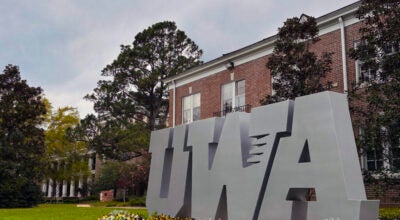Kallhoff address concerns on program cuts
Published 12:43 pm Thursday, July 20, 2017
Story originally appeared in the Oct. 22 Edition of the Demopolis Times
During the Oct. 18 meeting of the Demopolis City Schools System Board of Education, the board approved the 2016-2017 Capital Plan. In that plan was a measure to shift the direction of the system’s career tech programs, which included getting rid of the culinary arts career tech program.
This decision has been met with some concern and resentment by some members of the community. In fact, a student at Demopolis High School decided to start an online petition on change.org to persuade the superintendent to reconsider the decision citing concerns for the teacher as well as students who want to work in the field, but don’t plan to stay here.
DCSS Superintendent Kyle Kallhoff addressed these concerns.
“Our career tech programs have got to be lined up to the needs of our local economy or local workforce,” said Kallhoff. “Right if you look in the area of Demopolis, that’s not a need. Where we’re going is where the jobs are and that’s in HVAC, forestry, teaching and learning. If you talk to people in those industries that’s where the jobs are in Demopolis. Therefore, it’s our jobs as educators to make sure our programs are lined up with the needs of the community and southwest Alabama.”
While the culinary arts program is being phased out, family and consumer sciences class that include cooking will still have classes.
Kallhoff said the system will still have those electives, but the program in name itself will be done away.
No one is in danger of losing his or her job due to the dropping of the program according to Kallhoff. That teacher along with Demopolis High School Principal Chris Tangle are working on finalizing a schedule for the upcoming semester in fact.
The difference between having the career tech program is that the program requires a student to have three classes in a two-year period within that program.
Hospitality and tourism is the foundational class while Culinary Arts I and Culinary Arts II were the classes a student needed in the program. Now DHS will offer family and consumer sciences classes for students interesting in cooking, but not the full-fledged program.
Kallhoff recognizes there are students who have an interest in learning to cook and the system and DHS are keeping those electives to continue to have exposure to that experience.
When Kallhoff took the job, he inherited $60,000 with of commercial cooking equipment purchased on a state bond and has been sitting in a warehouse in Birmingham and other parts at John Essex.
At the most recent Demopolis City Schools Board of Education meeting, the board agreed to releasing that equipment back to the state so that it may be used at other schools starting or enhancing culinary arts programs.
Using the equipment would have required DHS to find a proper place for it at the school and start construction on proper ventilation for the equipment.
“We don’t need commercial cooking equipment if weren’t not going to have a culinary arts program,” said Kallhoff. “I’m sure when we got that equipment there was a vision to put it somewhere we could do this and teach it. But I think a better way of approaching that was to have the infrastructure there first and then buying the equipment. I think we got the cart a little bit before the horse by purchasing the equipment.”
Kallhoff was sure to reemphasize that the equipment in question was purchased by the state and not the system, so Demopolis didn’t lose anything in the exchange but the rights to use the materials.
When presented with the knowledge of the petition, Kallhoff was excited that a student took initiative to start a movement.
“I love to see student leadership. When I see that a student is taking a stance on something that he or she feels strong about, I admire that,” said Kallhoff. “I like to see students being leaders.”
Kallhoff has not yet met with the student who started the petition, but would like the opportunity to do so in the future.
“I meet with students a lot and always talk about leadership and a leadership void in this state and in this country. For a student to step and talk about something as important to them as this, that’s a leadership thing,” said Kallhoff.





